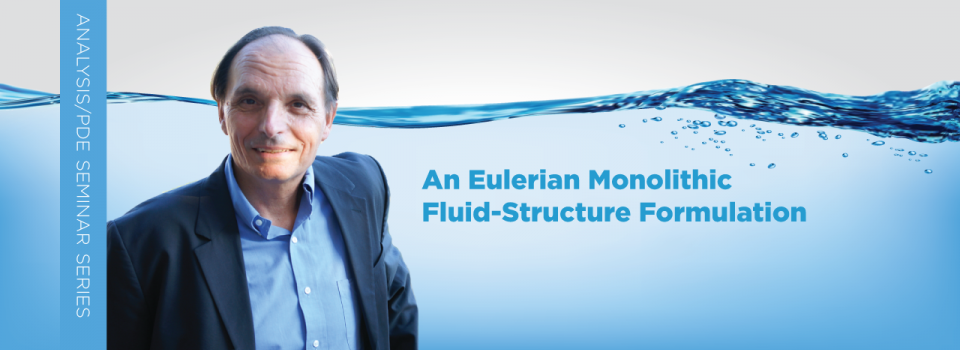
ANALYSIS/PDE SEMINAR SERIES
Sponsored by the NYU-ECNU Institute of Mathematical Sciences at NYU Shanghai
The conservation laws of continuum mechanics are naturally written in an Eulerian frame where the difference between a fluid and a solid is only in the expression of the stress tensors, usually with Newton’s hypothesis for the fluids and Helmholtz potentials of energy for hyperelastic solids. There are currently two favoured approaches to Fluid Structured Interactions (FSI) both working with the equations for the solid in the initial domain; one uses an ALE formulation for the fluid and the other matches the fluid-structure interfaces using Lagrange multipliers and the immersed boundary method. By contrast the proposed formulation works in the frame of physically deformed solids and proposes a discretization where the structures have large displacements computed in the deformed domain together with the fluid in the same; in such a monolithic formulation velocities of solids and fluids are computed all at once in a single variational formulation by a semi-implicit in time and the finite element method. The idea is not new but the progress of mesh generators renders this approach feasible and even robust. In this lecture the method and its discretization are presented, stability is shown by an energy estimate even in the discrete case. Extension to problems with contact will also be shown using the semi-smooth Newton algorithm on the variational inequality of the problem. A numerical section discusses implementation and presents benchmark cases in 2D.
Biography
Olivier Pironneau is a French mathematician who is a Professor at the Université Pierre et Marie Curie and member of the French Academy of Sciences.
Pironneau is a worldwide recognized expert in fluid mechanics, scientific computing, optimal design, numerical analysis and partial differential equations. He is a highly cited author, having written 8 books and 693 papers. He is a member of French Academy of Sciences since 2002. He was awarded the Marcel Dassault Prize by the French Academy of Sciences in 2000. He is also the recipient of the Blaise Pascal Prize of the French Academy of Sciences in 1983, the Ordre National du Mérite (1989) and is an Associate member of the Russian Academy of Sciences since 2004. His group has developed the software FreeFem++ which is used by researchers worldwide for finite element computations.


